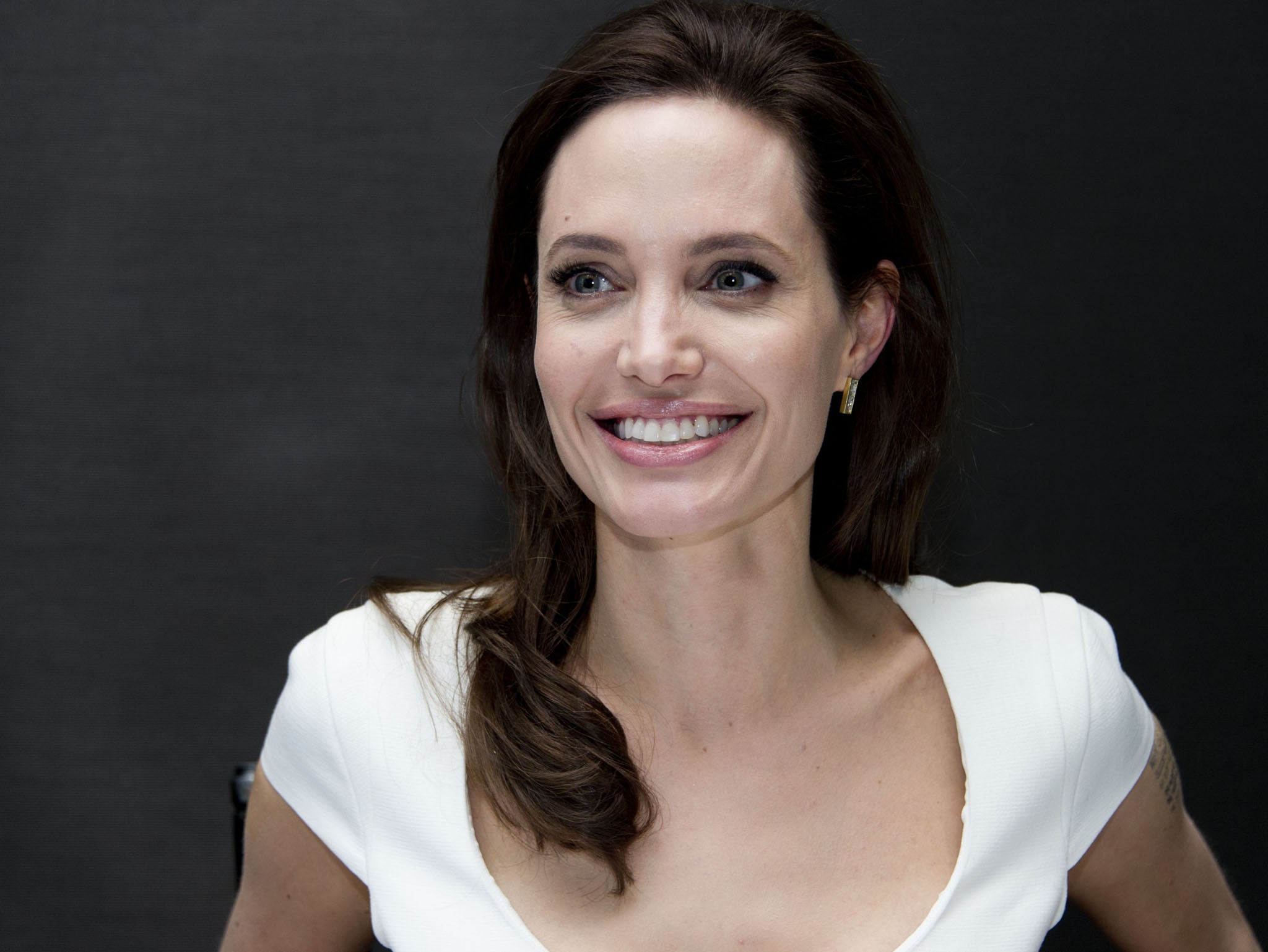Angelina Jolie removes ovaries: 'My children will never have to say, 'Mom died of ovarian cancer''
“I am now in the menopause. I will not be able to have any more children, and I expect some physical changes,” she writes for the New York Times

Your support helps us to tell the story
From reproductive rights to climate change to Big Tech, The Independent is on the ground when the story is developing. Whether it's investigating the financials of Elon Musk's pro-Trump PAC or producing our latest documentary, 'The A Word', which shines a light on the American women fighting for reproductive rights, we know how important it is to parse out the facts from the messaging.
At such a critical moment in US history, we need reporters on the ground. Your donation allows us to keep sending journalists to speak to both sides of the story.
The Independent is trusted by Americans across the entire political spectrum. And unlike many other quality news outlets, we choose not to lock Americans out of our reporting and analysis with paywalls. We believe quality journalism should be available to everyone, paid for by those who can afford it.
Your support makes all the difference.Angelina Jolie has undergone preventative surgery to remove her ovaries and fallopian tubes.
The actress’s decision comes just two years after she underwent a preventative double mastectomy, inspiring a debate on women’s health and genetic testing.
The UN Ambassador, 39, said she made the choice because she carries the BRAC1 gene. This means she has a 50 per cent risk of developing ovarian cancer – the same disease that killed her mother, Marcheline Bertrand, in 2007. She was 56.
“Last week, I had the procedure: a laparoscopic bilateral salpingo-oophorectomy. There was a small benign tumor on one ovary, but no signs of cancer in any of the tissues,” she wrote in a piece for the New York Times.
“It is a less complex surgery than the mastectomy, but its effects are more severe.” “It puts a woman into forced menopause. So I was readying myself physically and emotionally, discussing options with doctors, researching alternative medicine, and mapping my hormones for estrogen or progesterone replacement. But I felt I still had months to make the date.”
After a series of blood tests, and consultations with doctors, her mind was made up.
“I called my husband in France, who was on a plane within hours. The beautiful thing about such moments in life is that there is so much clarity. You know what you live for and what matters. It is polarizing, and it is peaceful.
“That same day I went to see the surgeon, who had treated my mother. I last saw her the day my mother passed away, and she teared up when she saw me: ‘You look just like her.’ I broke down. But we smiled at each other and agreed we were there to deal with any problem, so ‘let’s get on with it.’”
She went on to stress, however, that carrying the BRCA1 gene mutation does not mean “a leap to surgery”. Calling on other women to heed her advice, she writes: “There are other options. Some women take birth control pills or rely on alternative medicines combined with frequent checks. There is more than one way to deal with any health issue. The most important thing is to learn about the options and choose what is right for you personally.”
She goes on to add that it is not possible, even with preventative surgery, to remove all forms of cancer – a mutation she remains prone to. Instead, she writes, she will look for natural ways to boost her overall health and immune system.
“I feel feminine, and grounded in the choices I am making for myself and my family. I know my children will never have to say, ‘Mom died of ovarian cancer.’”
“Regardless of the hormone replacements I’m taking, I am now in menopause,” she concludes. “I will not be able to have any more children, and I expect some physical changes. But I feel at ease with whatever will come, not because I am strong but because this is a part of life. It is nothing to be feared.
“I feel deeply for women for whom this moment comes very early in life, before they have had their children. Their situation is far harder than mine. I inquired and found out that there are options for women to remove their fallopian tubes but keep their ovaries, and so retain the ability to bear children and not go into menopause. I hope they can be aware of that.
“It is not easy to make these decisions. But it is possible to take control and tackle head-on any health issue. You can seek advice, learn about the options and make choices that are right for you. Knowledge is power.”
Join our commenting forum
Join thought-provoking conversations, follow other Independent readers and see their replies
Comments